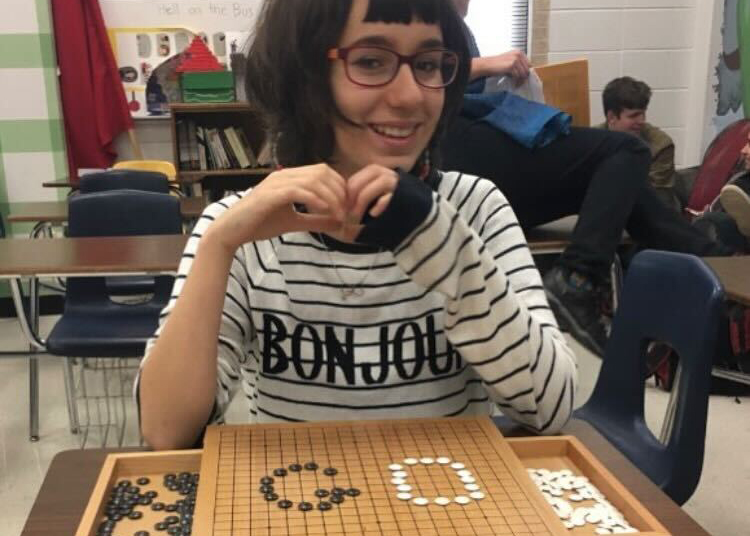Taking pride in silly things is one of life’s little pleasures. Developing a minor god-complex over these same silly things is cautionable. Yet, as founder, captain, and president of my high school Go Club, I held a minor tyranny over a room full of my own classmates weekly—and I turned out just fine.
Go is a Chinese board game, thought to be the oldest board game in existence. In a sign of the fast-approaching technological singularity, an artificial intelligence model finally managed to beat a top professional player in 2016, shocking those who view Go as an innately human art. The difficulty––previously thought only to be playable by the intuitive human mind––lies in the game’s sheer complexity. Pieces are placed on the intersections of a 19 by 19 grid, resulting in a number of possible combinations that are simply incalculable by me right now.
The gameplay itself is aesthetically pleasing, with a controlled clicking of polished shell and stone pieces onto the tight grid of a wooden goban. Not that my Go Club had the traditional clamshell pieces. My Go club had plastic pieces with magnets glued preciously into their centres. We had cheap magnetic boards, and small plastic bowls to collect captured stones. We also were eating lunch, and my friends had very sticky fingers.
The time spent hand-washing pieces aside, being Go Club captain was a very cool position. To be clear, I mean cool as in popular, as in major spendable social capital. In my eyes, Go Club captain was as cool as one could get in a college-prep high school where the primary form of bullying was GPA mocking. And, as a little lesbian nerd in Texas, it was a place where I managed to blossom a minor superiority complex, like a little bespectacled wildflower poking her young, smackable head through a concrete sidewalk.
Every Friday, I would take great pride in laying out the boards and helping pair people off as they came in. Then, I would stalk around the room, making comments on gameplay and giving tips. Mind you, I was not very good myself, so I’m not quite sure how seriously my commentary was taken. I reached a casual level of 15 kyu (25 kyu is total beginner, and one is almost professional) according to the online platform I spent my free time playing on.
I was, however, very obviously passionate. I would play online Go during lectures and on the bus, I would teach anyone who’d sit still with me. I bought boards, founded a club, and even ran a meme account in the hope of boosting participation.
Members would flag me down, asking me for help. We would work through moves, putting down pieces to try out variations and discussing which types of stone formations were most efficient. The atmosphere was laid-back, with glimpses of passion and thrill that come from executing a complex strategy. Despite my hoodies, my messy backpack, and my generalized teenage grossness, I felt respected in the space I had created.
Maintaining your confidence is hard. Academics are competitive, and require an ability to compartmentalize that can break down when life gets rough. You will move, and lose friends and spaces that grounded you. And, worse, there will always be someone cuter than you (so I’ve heard). Constant ego-death is a beautiful and normal byproduct of young adulthood.
So, get freaky with what you take pride in. Remember, the more niche, the less competition. As long as there isn’t another ex-Go Club captain, founder, and leader-for-life in my immediate vicinity, I will always walk with a little––but perceptible––pep in my step.








